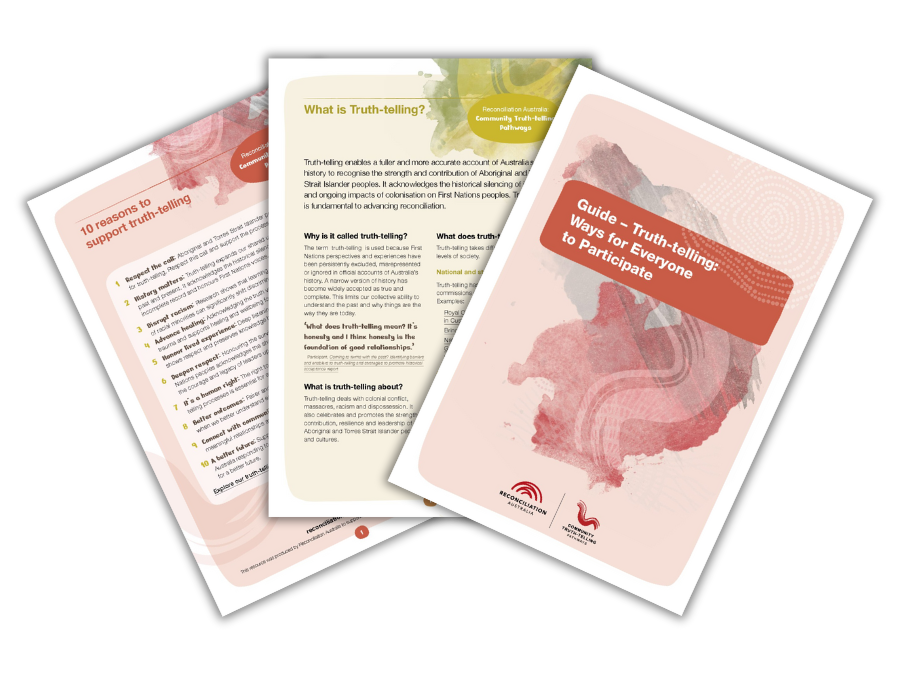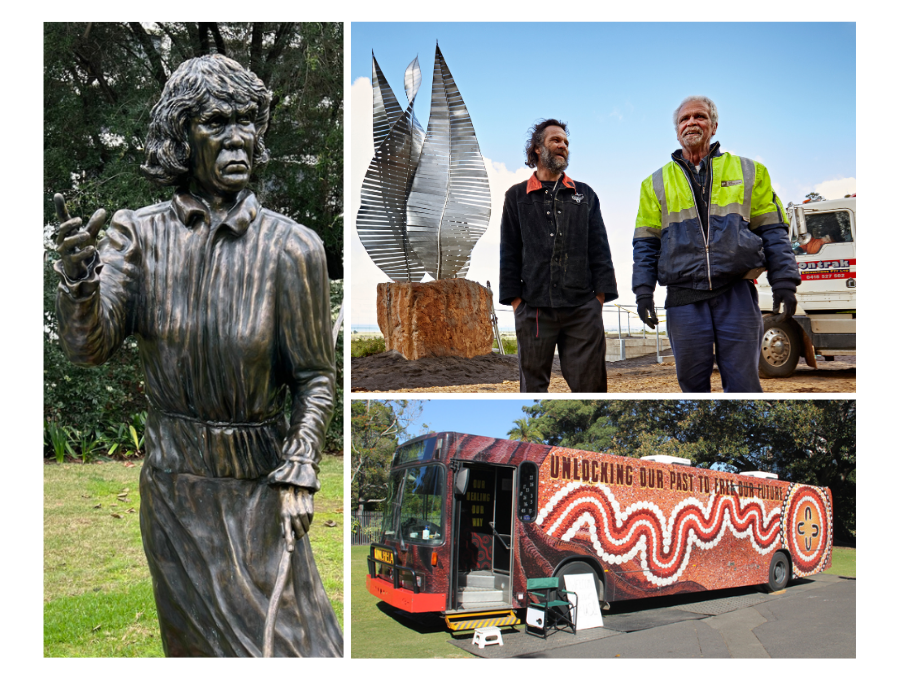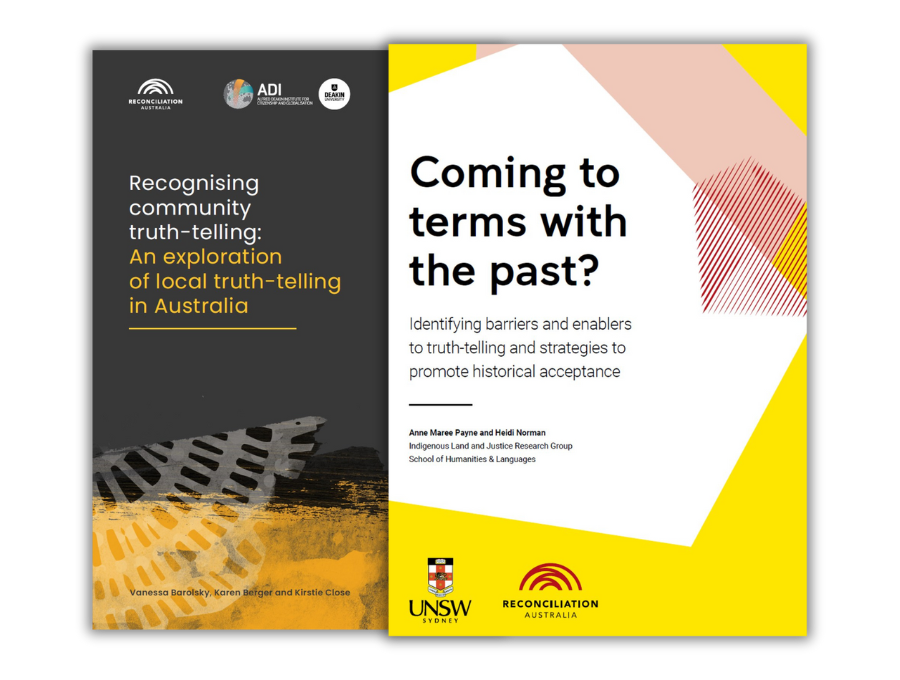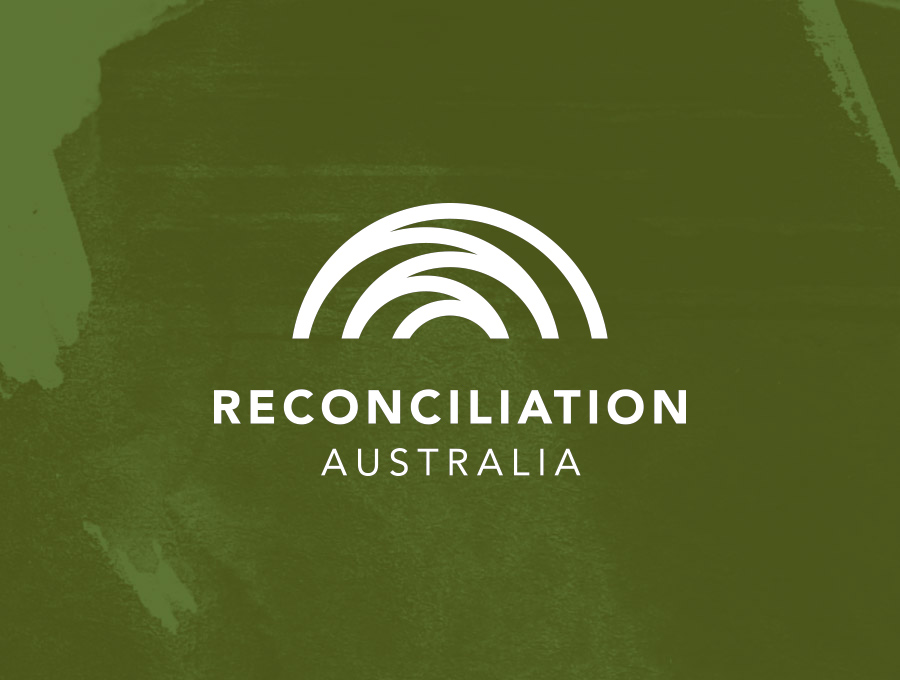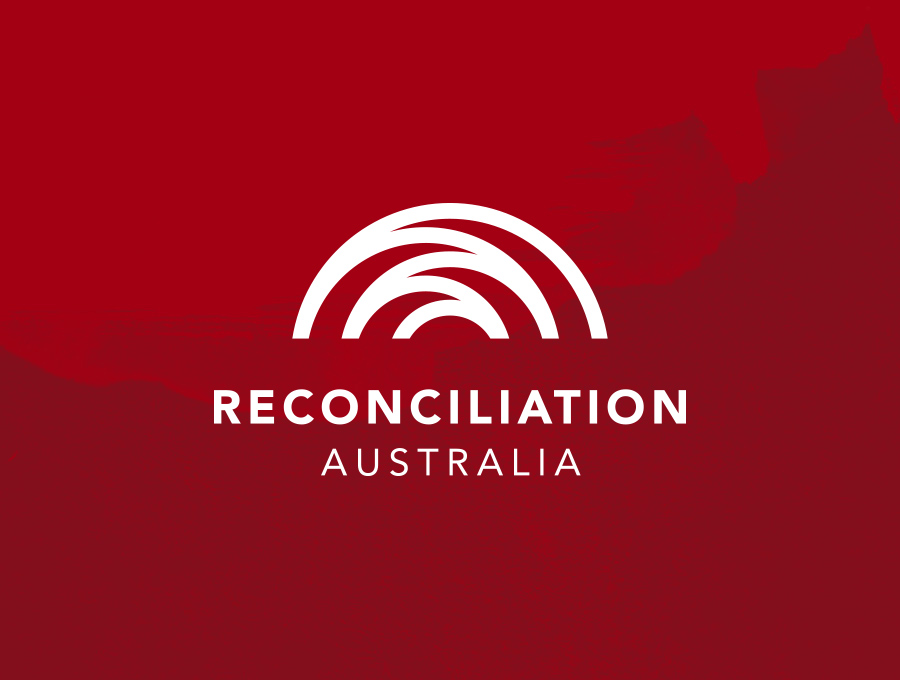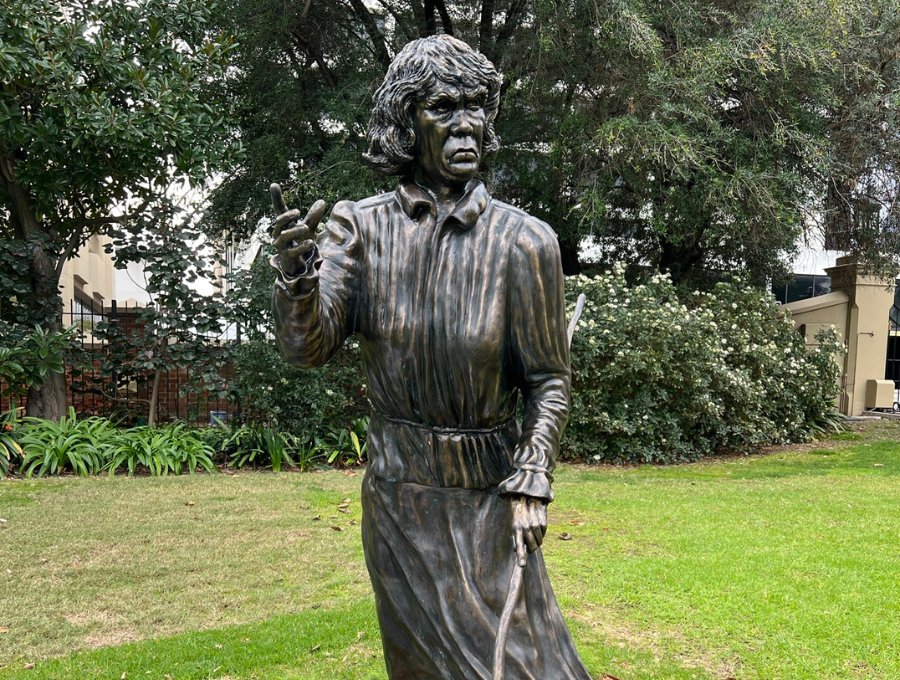Community Truth-telling Pathways provides information and practical resources to support communities undertaking truth-telling and to enable non-Indigenous Australians to better understand how to participate.
What is truth-telling?
Truth-telling encompasses a range of activities, initiatives and processes that enable a fuller and more accurate account of Australia’s history, an account that recognises the strength and contributions of Aboriginal and Torres Strait Islander peoples.
It acknowledges the historical silencing of injustices and ongoing impacts of colonisation on First Nations peoples. It is fundamental to advancing reconciliation.
Truth-telling is also important to advancing self-determination and other central principles embedded in the United Nations Declaration on the Rights of Indigenous Peoples (UNDRIP).
Truth-telling practice
Community Truth-telling Pathways promotes meaningful engagement between First Nations and non-Indigenous Australians with an ongoing process of truth-telling, truth-listening and truth-acting.
Our work is guided by four principles: it is First Nations community led, place based, strengths focused and action oriented.
The program is based on a learning framework which contributes to the national community of practice through research, case studies, partnerships and other knowledge sharing opportunities undertaken with communities involved in local truth-telling processes.
Informed by this work, we’re providing a growing collection of practical resources that support communities and individuals to expand their understanding of truth-telling and to undertake it using culturally appropriate and supportive practices.
Truth-telling and reconciliation
Reconciliation is about strengthening relationships between Aboriginal and Torres Strait Islander and non-Indigenous peoples, for the benefit of us all. Truth-telling has always been at the heart of reconciliation and will continue to be a keystone of our work to create a more just and equitable Australia.
Our vision of reconciliation is based on and measured against five dimensions: race relations, equality and equity, historical acceptance, institutional integrity and unity.
While truth-telling is essential to each of the five dimensions, it is expressly called for in the historical acceptance dimension. Achieving historical acceptance requires that all Australians understand and accept the wrongs of the past and their impact on Aboriginal and Torres Strait Islander peoples.
Its goal is widespread acceptance of our nation’s history through truth, justice and healing.
Our relationships will be stronger with a shared and honest understanding of our past and how that journey continue to shape our future.
Formal truth-telling across Australia
The activities listed below are specific whole of jurisdiction government initiatives and are at various stages of the truth-telling process.
National truth-telling
Reports from the Royal Commission into Aboriginal Deaths in Custody and the Bringing Them Home report, are landmark examples of national truth-telling.
The Uluru Statement from the Heart with its call for Voice, Treaty and Truth captures Aboriginal and Torres Strait Islander aspirations for ‘a fair and truthful relationship with the people of Australia based on justice and self-determination.’
State and territory truth-telling
The Yoorrook Justice Commission in Victoria is the most comprehensive current example of state-level truth-telling.
From 2021-2025, Yoorrook conducted numerous inquiries into the following focus areas: access to records, child protection, criminal justice, economic prosperity, education, health, housing, land, sky and waters, political life and redress.
On 1 July 2025, the Commission’s final reports, including 100 recommendations for reform, were tabled in the Victorian Parliament.
Engagements with the Aboriginal community in Tasmania led to the 2021 Pathway to Truth-telling and Treaty report, which contained 24 recommendations, including four related specifically to truth-telling in the state.
An Aboriginal Advisory Group was established in response and will deliver its final report to the Tasmanian Government in mid-2025.
The South Australian Government has committed to a state-based implementation of the Uluru Statement from the Heart, starting with a First Nations Voice to Parliament.
In July 2022, the government appointed a Commissioner for First Nations Voice, and in March 2023, the First Nations Voice Act was passed.
The first elections for the Voice were held in March 2024. Two Members were elected from six local Voice regions, for 12 representatives in total.
Members of the South Australian First Nations Voice to Parliament
The Path to Treaty Act was passed in 2023 by the Queensland Labor Government. The first step was the establishment of the Truth-telling and Healing Inquiry.
After winning the 2024 election, the Liberal National Government repealed the Path to Treaty Act. As a result, the Inquiry ceased operations in November 2024.
Read the final statement from the Truth-telling and Healing Inquiry
Established following the 2018 Barunga Agreement, the Northern Territory Treaty Commission’s final report in 2022 identified truth-telling as imperative in the overarching Treaty process. The Commission was subsequently closed in December 2022.
In 2024, the Territory Labor Government ran a Truth, Healing and Reconciliation Grant Program. There were 17 successful applicants.
In February 2025, the Country Liberal Government abandoned the Treaty process and no announcements have been about future Grant rounds.
Truth-telling news
Subscribe for updates
Stay updated on new resources and developments from Community Truth-telling Pathways. If you have any questions about the program or resources, contact us.

